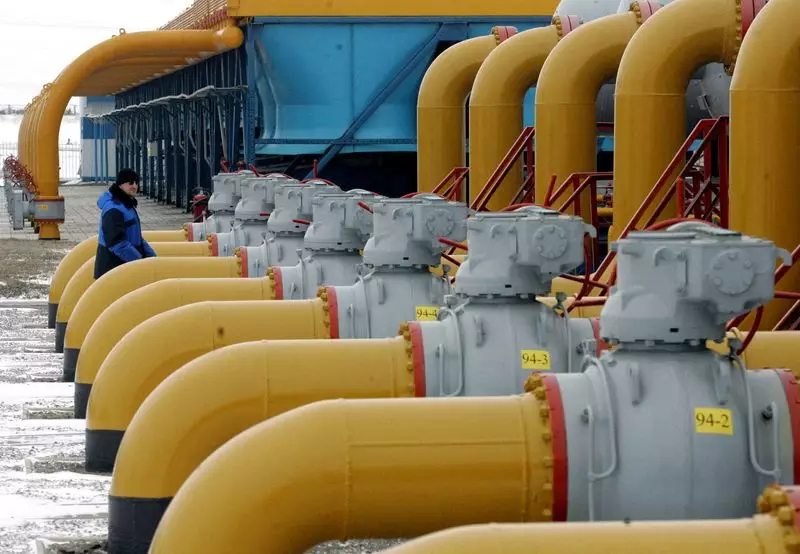On January 1, 2025, a crucial chapter in European energy history closed as Russian natural gas exports via the timeworn pipelines traversing Ukraine were permanently halted. This event did not merely signify the end of gas transit through these routes; it illustrated the profound ramifications of geopolitical tensions that have escalated since 2014, when Russia annexed Crimea. The cessation of gas supplies marks a pivotal shift not only in energy dynamics but also in the lingering hostilities between Moscow and Kyiv, which have continued unabated since the onset of the full-scale war in February 2022.
The discontinuation of gas flow represents a watershed moment, underscored by Ukraine’s steadfast refusal to extend its transit agreements with Russia amid the ongoing military conflict. Ukrainian Energy Minister German Galushchenko aptly characterized the halt as “a historic event,” reflecting not only a substantial economic shift but also a symbolic victory for Ukraine against the backdrop of Russian aggression.
The Economic Impact on Ukraine and Russia
With the gas transit ceasing, Ukraine faces an estimated annual loss of $800 million in transit fees—funds that had been vital for its economy. Conversely, Gazprom, Russia’s state-controlled gas company, could suffer losses exceeding $5 billion in revenue from contracted gas sales. This economic fallout is particularly troubling for a nation already strained by military expenditures. The gas route through Ukraine was once a linchpin of Russia’s energy strategy, accounting for about half of its total pipeline gas exports to Europe at one time.
The repercussions extend far beyond financial metrics. The definitive stop of Russian gas exports through Ukraine signals the collapse of a market Russia once dominated. Gazprom, which had ambitions of maintaining its grip on European energy supplies, must now confront the reality of dwindling markets. Recent strategic miscalculations have left it reliant on just a fraction of its previous export capabilities.
In response to the ongoing conflict and the volatile energy landscape, the European Union has accelerated efforts to wean itself off Russian gas. Countries across the continent, once heavily dependent on these supplies, have undertaken extensive measures to diversify their energy sources. The completion of alternative supply arrangements illustrates Europe’s determination to stabilize its energy security in the face of growing uncertainty.
Key nations like Slovakia and Austria, previous buyers of Russian gas, are already pivoting towards alternative suppliers, displaying remarkable agility in adapting to the new energy reality. Meanwhile, Moldova, still reeling from the effects of the gas stoppage, will have to implement austerity measures to cut its gas usage by one-third—a reflection of the broader regional instability wrought by the conflict.
This energy crisis is inextricably linked to wider geopolitical currents. The Yamal-Europe pipeline, once a vital conduit for Russian gas through Belarus, has also been rendered inactive, with the Nord Stream pipeline’s destruction further amplifying Gazprom’s challenges in supplying Europe. Together, these developments have dramatically transformed the landscape of energy supply that once had Russia as a dominant player.
The surge in alternative energy resources and the increasing investment in renewable energy infrastructure mark a shift towards a more diverse, sustainable energy framework in Europe. This pivot away from fossil fuel dependence encapsulates the EU’s broader ambitions for security and sustainability.
The halting of Russian gas exports through Ukraine not only signifies an end to an era of reliance on Russian energy but also heralds a new phase in global energy dynamics. As Europe seeks to redefine its energy security posture, Russian gas, once an integral component, is rapidly being supplanted by alternative sources. The long-term implications of this energy reshaping will resonate across geopolitical boundaries, signaling a substantial recalibration of energy relationships in the 21st century. For Russia, these are challenging times, as it grapples with both economic losses and a diminished influence on the European energy scene, illustrating the far-reaching consequences of its actions in the region.

